Editorial: Between the Lines: How Detroit Drove Into a Ditch

Paul Ingrassia’s essay in The Wall Street Journal takes a stab at a question which has preoccupied me for years. How the hell did the American automotive industry, which once was the model of industrial might for the world, become a sickly embarrassment? Generally, blame is apportioned amongst these areas: management, labor unions, government, customers and bad luck. Ingrassia comes down pretty hard on management, with a supporting role for the unions.
Ingrassia opens by pointing out the scant media attention paid to the opening of Honda’s new 200k-Civics-per-year factory. The Indiana opening stands in stark contrast to Motown automakers’ seemingly endless factory closings and layoffs (i.e. paying union workers not to work).
“This situation doesn’t stem from the recent meltdown in banking and the markets. GM, Ford and Chrysler have been losing billions since 2005, when the U.S. economy was still healthy. The financial crisis does, however, greatly exacerbate Detroit’s woes. As car sales plunge — both in the U.S. and in Detroit’s once-booming overseas markets — it’s becoming nearly impossible for the companies to cut costs fast enough to keep pace with the evaporation of their revenue. All three companies, once the very symbol of American economic might, need new capital, but their options for raising it are limited.”
But how did we get here? Product is the key. Ingrassia provides a good list of American post-war hits including the GTO, Caravan, Taurus and Explorer. All were segment busters– and not a one of them was created in the last 17 years. The Explorer launch of 1991 was Detroit’s last breakthrough product. But why?
“In all this lies a tale of hubris, missed opportunities, disastrous decisions and flawed leadership of almost biblical proportions. In fact, for the last 30 years Detroit has gone astray, repented, gone astray and repented again in a cycle not unlike the Israelites in the Book of Exodus.”
Ingrassia gives the transplants props for making allies out of their US workers. In the 1970s, it was still popular to blame the quality problems of American cars on the workers who built them. Honda tiptoed into these scary waters in 1979, opening of a small motorcycle assembly plant in Ohio. Workers were initially frustrated by their task of building a few motorcycles and then taking them back apart to evaluate quality and figure out how to make it better. But they learned the Japanese way. Motorcycle manufacturing proved to Honda that American workers were not the problem.
By 1982, Honda Ohio was cranking-out new Accords. And they never looked back. Two years later, Toyota opened NUMMI joint venture plant in Fremont, California, which still builds Corollas, Tacomas and Pontiac Vibes.
Amen to that. Even so, those hit products of the late 1980s and the truck boom of the 1990s allowed Detroit to prosper. But only if you measure success in terms of profits, rather than share. Slowly, calmly, inexorably, the transplants continued eating Detroit’s lunch. By the beginning of the new millennium, Detroit was oblivious to the enemy within its gates. Motown was flush with cash, embarking on a global buying spree.
“In June 2000, GM’s confident new CEO, Rick Wagoner, invited journalists to a resort in Italy’s Alpine lakes to describe a corporate future of ‘fewer cars, more trucks,’ as the Detroit Free Press wrote. Ford’s CEO Jacques Nasser upgraded the décor on the corporate jets and removed the company’s blue-oval logo from the outside of corporate headquarters while the Ford Taurus — once the best-selling car in America — was falling further behind the Toyota Camry and the Honda Accord.”
Easy money in trucks hid the rot within. Who cared that the Taurus had gone from #1 retail vehicle to rental car hell? One Lincoln Navigator made the profits of twenty or more Tauri. But just a few short years later, Katrina sparked the first fuel price run-up in decades. Not much later, the combined forces of growing demand and commodities market shenanigans sent fuel prices in a steep climb which has only recently started to turn around.
Suddenly, the truck boom went bust. The Emperors of Detroit were revealed in all their naked glory. (Well, at least to those outside the gates.) Now, with gas prices are coming down, credit markets have imploded. In these tough time, a Detroit management has long played badly with suppliers, employees and customers suddenly needs all the help it can find. BUT you have to build strong partnerships in the good times to tap into them when the going gets tough. Oops. All those management bonuses for cost-cutting related profits and “hard-headed negotiating techniques” [irony alert] don’t look so good anymore.
What now? Ingrassia gives a slight edge to Ford in the question of who has the best chances to make it out of the nightmare alive; Chrysler is toast already. GM is nearly out of cash. Unfortunately, no one told the feds that only fools rush in.
The dramatic denouement of this sad saga– David Halberstram’s long-predicted Reckoning, will be postponed for the forseeable future. But no matter who– if anyone– emerges from Detroit’s penultimate debacle, the simple truth is that Detroit has no one to blame for their plight but themselves.

More by John Horner
Latest Car Reviews
Read moreLatest Product Reviews
Read moreRecent Comments
- Master Baiter I thought we wanted high oil prices to reduce consumption, to save the planet from climate change. Make up your minds, Democrats.
- Teddyc73 Oh look dull grey with black wheels. How original.
- Teddyc73 "Matte paint looks good on this car." No it doesn't. It doesn't look good on any car. From the Nissan Versa I rented all the up to this monstrosity. This paint trend needs to die before out roads are awash with grey vehicles with black wheels. Why are people such lemmings lacking in individuality? Come on people, embrace color.
- Flashindapan Will I miss the Malibu, no. Will I miss one less midsize sedan that’s comfortable, reliable and reasonably priced, yes.
- Theflyersfan I used to love the 7-series. One of those aspirational luxury cars. And then I parked right next to one of the new ones just over the weekend. And that love went away. Honestly, if this is what the Chinese market thinks is luxury, let them have it. Because, and I'll be reserved here, this is one butt-ugly, mutha f'n, unholy trainwreck of a design. There has to be an excellent car under all of the grotesque and overdone bodywork. What were they thinking? Luxury is a feeling. It's the soft leather seats. It's the solid door thunk. It's groundbreaking engineering (that hopefully holds up.) It's a presence that oozes "I have arrived," not screaming "LOOK AT ME EVERYONE!!!" The latter is the yahoo who just won $1,000,000 off of a scratch-off and blows it on extra chrome and a dozen light bars on a new F150. It isn't six feet of screens, a dozen suspension settings that don't feel right, and no steering feel. It also isn't a design that is going to be so dated looking in five years that no one is going to want to touch it. Didn't BMW learn anything from the Bangle-butt backlash of 2002?
















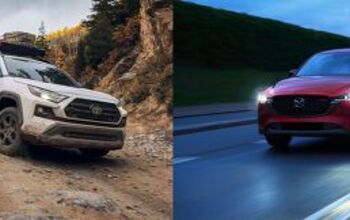


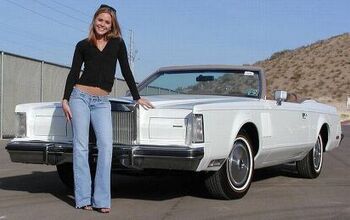
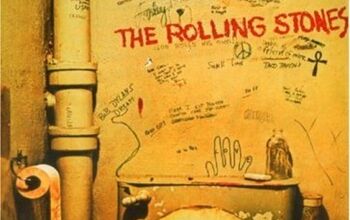







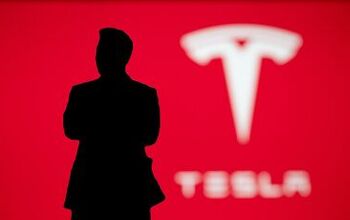
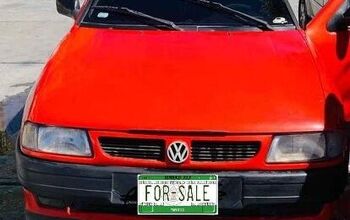




Comments
Join the conversation
Yeah, business schools have to go! I worked for a great company that was run into the ground by b-school grads. I used to live in a coal mining region, and at one time and saw the need for unions. But 60 bucks an hour for a job that takes an 8th grade education?! Come on. And of course management.(which has been lot's of good posts) However I think was overlooked was the American consumer. Face it, when gas was cheap, who wanted to by a small car. The oversees cars manufactures had to make small cars for their home market first. So there was no motivation for Detroit to build small cars. The Feds could have adverted this by slapping an extra tax on gas and then give it back as a tax deduction. (there was such a plan floated, but no poll had the guts to propose it.